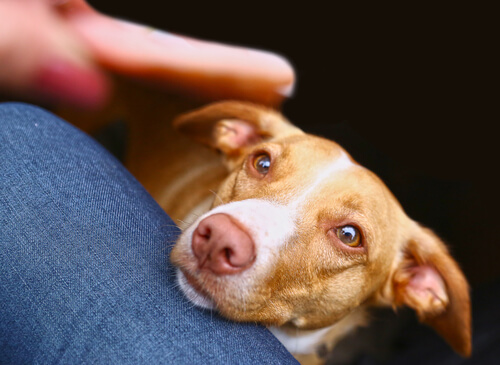How to Make Your Dog Stop Begging For Food

It’s something that’s truly intolerable: Sitting at the table with the dog begging for food. Some, even after just finishing their own food. But they also do anything anything to make us feel sorry for them. Basically, they just want a little of what we’re eating.
Is it normal for dogs to constantly beg for food?s
Sure, it may be a habit that bothers us. And, we’d like to break the habit. But, the truth is that we can’t blame them. It’s basically a matter of instinct that, while may be “hidden” with training, in some moment or other will come to light.

Think of your reaction when you all are at home making delicious food. What do you do? Go to the kitchen! In the case of dogs the same thing happens. T hey want to see what their owner is enjoying. And they especially want to try a little of that delicious delicacy. However, it’s not for them!
It might not bother you that your dog begs for food as soon as you sit down to eat dinner. Nevertheless, the problem begins when you have guests over. Then, the dog constantly goes over to your guests. Next, the dog puts on his best impression of puppy dog eyes to get a scrap of chicken, a bone or a slice of bread.
“Greedy” dogs are experts in every type of antic to get what they want. And if there are children at home, they’ll be their main accomplices. After all, kids often give them food under the table.
A good early training may help the dog to not beg for food all the time.
How to keep your dog from begging
They know how to break us down and accept their blackmail. They put on a sad face, they cry…Sometimes, they even get our attention with their little paws. But we must resist the temptation of giving them food, because that encourages their begging.
While the best thing is teaching them from the time they’re puppies not to beg for food at the table, many time this habit is picked up in the first couple years of life. To keep your from feeling like the worst owner in the world for not sharing your food with your pet, pay attention to these tips:
1. Keep your dog far from the table
When he leans his front legs on the table, you will have to remove them with a simple movement of your arm. You will need to do this several times over several days. After a week or two, the dog will understand that it’s not allowed. Accompany that movement with an effusive and direct “no.”
2. Put up a barrier
If that doesn’t work, you’ll have to create a type of barrier so that he can’t come over to the table or the surrounding area. For example, close the door of the kitchen, put up the baby gate, or even leave him on the roof or the patio. This may seem a little rude or heartless, but you’ll avoid the annoyance of the animal constantly begging for food.
3. Give him food before or while you eat
Many dogs finish their meal in a few seconds, but there are others that might need a few minutes to swallow everything. One good idea is to serve him his dog food at the same time that we put our food on the table. This way we’ll have a few minutes of peace. Another option is taking advantage of him begging for our food to go and fill his bowl with food. This way the animal will understand the difference between the menus for dogs and humans.

4. Keep the animal busy while the dog begs for food
You can give him a toy, for example, or a bone to chew, so he is entertained while you eat. If you have more than one dog, this would be an ideal moment for them to play together on the patio, roof or deck.
5. Tie him up near you
This option might seem drastic, as he could bark or cry enthusiastically, but in some cases this works. Put him on the leash and tie him up a few meters from the table. Put his bed next to him so he’s comfortable, as well as his food and water bowl.